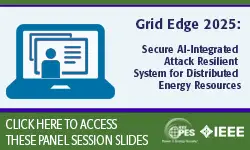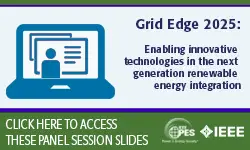Online Centralized Charging Coordination of PEVs With Decentralized Var Discharging for Mitigation of Voltage Unbalance
Nasim Jabalameli, Xiangjing Su, and Arindam Ghosh
-
Members: FreePES
IEEE Members: Free
Non-members: FreePages/Slides: 10
01 Aug 2019
The worldwide acceptance of plug-in electric vehicles (PEVs) is expected to tremendously grow in the next few years. Uncoordinated PEV charging can cause serious grid issues such as overloading of transformers and unacceptable voltage drops. Single-phase residential charging can also initiate or contribute to voltage unbalance in distribution networks. A potential solution for the PEV integration is shifting the charging activities from peak to valley periods. Therefore, this paper firstly investigates the impacts of uncoordinated single-phase PEV charging at residential houses on three-phase distribution networks. Then, it proposes a novel PEV charging coordination strategy based on heuristic genetic algorithm (GA) to perform online centralized charging considering transformer loading and bus voltage profiles. Based on this, a decentralized PEV reactive power discharging approach is presented where the reactive power is discharged at selected nodes for further reduction of voltage unbalance. The impacts of uncoordinated PEV charging as well as the performance of the proposed centralized PEV charging and decentralized var discharging strategies are tested on a real unbalanced Western Australian distribution network under the Perth Solar City project over 24 hours.


